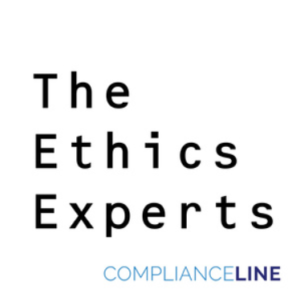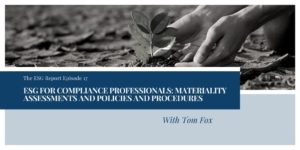Last week, Credit Suisse Group AG settled a massive fraud action involving a non-existent Mozambiquan tuna boat fleet. While Texans have long had a fond place in their hearts for our convicted con man Billy Sol Estes, who defrauded the US federal government out of millions with his tales of nonexistent fertilizer tanks, faked mortgages and bogus cotton-acreage allotments; Billy Sol Estes was a piker compared to the bankers at Credit Suisse, the bank itself and the thoroughly corrupt politician running the country of Mozambique in creating and selling a loan package eventually totaling some $850 million for tuna boats that never existed. Over the next few blogs, I will be looking at the Credit Suisse enforcement action which involved the Department of Justice (DOJ), Securities and Exchange Commission (SEC) and UK Financial Conduct Authority (FCA).
US Attorney Breon Peace for the Eastern District of New York, noted, in the DOJ Press Release, “Over the course of several years, Credit Suisse, through its subsidiary in the United Kingdom, engaged in a global criminal conspiracy to defraud investors, including investors in the United States, by failing to disclose material information to investors, including millions of dollars in kickbacks to its bankers and a high risk of corruption, in connection with an $850 million fraudulent loan to a Mozambique state-owned entity.” According to Anita B. Bandy, Associate Director of the SEC’s Division of Enforcement, speaking in the SEC Press Release, “Credit Suisse provided investors with incomplete and misleading disclosures despite being uniquely positioned to understand the full extent of Mozambique’s mounting debt and serious risk of default based on its prior lending arrangements. Fraud was also a consequence of the bank’s significant lapses in internal accounting controls and repeated failure to respond to corruption risks.”
This enforcement action scorched the tattered reputation of the Swiss banking giant. Three Credit Suisse employees had previously pled guilty to receiving kickbacks as a part of the fraud. The FCA noted in its Press Release, “The contractor secretly paid significant kickbacks, estimated at over US$50 million, to members of Credit Suisse’s deal team, including two Managing Directors, in order to secure the loans at more favourable terms. While those Credit Suisse employees took steps to deliberately conceal the kickbacks, warning signs of potential corruption should have been clear to Credit Suisse’s control functions and senior committees. Time and again there was insufficient challenge within Credit Suisse, or scrutiny and inquiry in the face of important risk factors and warnings. The Republic of Mozambique has subsequently claimed that the minimum total of bribes paid in respect of the two loans is around US$137 million.”
The overall settlement was for a total of $475 million paid to the DOJ, SEC and FCA and an additional forgiveness of $200 million in debt held by Credit Suisse against the country of Mozambique, which the FCA took into account in determining its financial penalty. The Bank also agreed to a methodology to calculate proximate fraud loss for victims of its criminal conduct; the amount of restitution payable to victims will be determined at a future proceeding. The DOJ Press Release also noted that “Switzerland’s Financial Market Supervisory Authority (FINMA) also engaged in an enforcement action, which includes the appointment of an independent third-party to review the implementation and effectiveness of compliance measures for business conducted in financially weak and high-risk countries, subject to FINMA’s administrative process.” This means the bank will be up for a very high-profile monitorship.
Relatedly, the SEC Order stated the monies paid to the SEC under its profit disgorgement penalty “will be distributed to harmed investors, if feasible through a Fair Fund. The Commission will hold funds paid pursuant to paragraph IV.B [in the Order] in an account at the United States Treasury pending a decision whether the Commission in its discretion will seek to distribute funds. If a distribution is determined feasible and the Commission makes a distribution, upon approval of the distribution final accounting by the Commission, any amounts remaining that are infeasible to return to investors.”
Credit Suisse also agreed to resolve its case with the FCA, qualifying it for a 30% discount in the overall penalty. Without the debt relief and this discount, the FCA would have imposed a significantly larger financial penalty.” However, the conduct of Credit Suisse with the US enforcement agencies was certainly suboptimal. The DOJ noted that the bank failed to voluntarily disclose the conduct to the department, the overall the nature and seriousness of the offense, which included the involvement of bankers up to the Managing Director level. Moreover, “Credit Suisse received only partial credit for its cooperation with the department’s investigation because it significantly delayed producing relevant evidence. Accordingly, the total penalty reflects a 15% reduction off the bottom of the applicable U.S. Sentencing Guidelines range.”
There is a lot to unpack in this matter and I will be doing so in the next several blogs. Moreover, there is much for the compliance practitioner to digest from the case. From some of the basics like due diligence, to internal controls, the lines of defense and an overall risk management protocol, this case has quite a bit to offer. All I can say is that if Billy Sol Estes were around, he sure would be looking at Credit Suisse and its toxic culture as a way to defraud an entire new set of investors out of a pile of money.
Join us tomorrow as we look at due diligence in international deal making.










